











Read More
Embark on a transformative journey with our three-year graduate program in Trauma Emergency and Disaster Management. Designed to equip students with essential technical skills and knowledge, our comprehensive curriculum covers a spectrum of critical emergencies, including cardiac, neurological, polytrauma, and pediatric cases. You'll delve into disease processes and specific bedside procedures, gaining the expertise needed to manage high-pressure situations with confidence. Through hands-on training and simulations, you'll develop practical experience that prepares you for the challenges of real-world emergency response. Our program prepares graduates to excel in various roles, from emergency medical technicians to trauma care coordinators, with opportunities in hospitals, ambulance services, and even air ambulance operations like 108 services. Benefit from a dynamic learning environment led by experienced faculty and industry professionals, and propel your career forward in this rapidly growing field. Join us and become a skilled professional ready to make a difference in emergency management.
Year wise Course Details
Courses for this semester
The course human anatomy and physiology is introduced to help students to learn about the foundational concepts as well as the structure (anatomy) and function (physiology) of the human body and also assist the student in understanding the relationships between normal structure and function in human cells, tissues and organs.
This course provides an in-depth understanding of the technical aspects of biochemical studies, emphasizing clinical findings related to body metabolites and explaining energy flow through ATP in human cells.
This program will cover the topic to manage, schedule, coordinate, direct, and track the effects of medical and health services, their knowledge is needed. India is the second-most populous country in the world, and this number has kept growing for the past years. It is slated to continue to do so. With the increase in population, the demand for better healthcare and hospital administration will also increase. Even today, we can observe that many Health projects are being carried out by the government as well as by private entities. This includes Medical colleges, super-specialty hospitals, laboratories, and so on.
Aims to provide students with a comprehensive understanding of human behavior and mental processes. Explore various psychological domains such as cognitive, developmental, social, and abnormal psychology, gaining insights into how individuals think, feel, and act.To be equipped with critical thinking skills and an appreciation for the complexities of human behavior, enabling them to apply psychological concepts to real-world situations.
This is course is designed to equip students with essential knowledge and skills in the examination of patients. The course covers a range of topics, including the principles of clinical examination, history taking, vital signs assessment, physical examination techniques, interpretation of findings etc. A t the end of the course, learners will be able to apply their knowledge and skills to accurately and effectively examine patients, integrate findings into clinical decision making, and communicate findings to other healthcare professionals. They will be prepared to continue their training in more advanced clinical examination techniques and practical applications.
This course offers a comprehensive understanding of the subject through engaging online content, complemented by hands-on experience with interactive exercises and real-world projects. It also emphasizes the development of effective communication and teamwork skills through online discussions and collaborative group activities.
This course fosters skill development and personal growth by encouraging participation in diverse extracurricular and co-curricular activities. Students will enhance their teamwork and leadership abilities through engagement in club-led events and competitions, gaining practical learning experiences beyond the academic curriculum.
Courses for this semester
Provide a comprehensive concept of all the anatomical position and physiological function of the human body.
Impart the knowledge in the technical aspects of biochemical studies specially focusing on the clinical findings in various body metabolites.
This course provides foundational knowledge and practical skills essential for delivering effective, compassionate, and professional healthcare services in a hospital setting. It focuses on the responsibilities of healthcare workers, patient care protocols, and communication within the multidisciplinary team. It is designed to prepare students for clinical roles by fostering a patient-centered approach and ensuring safety and efficiency in hospital operations.
It is an essential part of holistic education, designed to complement academic learning and foster personal, social, and professional growth. These activities encompass a wide range of programs that develop skills, creativity, leadership, teamwork, and social responsibility, preparing individuals for real-world challenges beyond the classroom.
This course equips participants with essential knowledge and hands-on techniques to respond effectively in emergency situations. The focus is on recognizing life-threatening conditions, providing immediate care, and ensuring safety until professional help arrives. Topics include cardiopulmonary resuscitation (CPR), choking relief, wound care, and basic first aid. Suitable for individuals of all backgrounds, the course emphasizes practical application through simulations and demonstrations.
Courses for this semester
Aims to provide students with a comprehensive understanding of human behavior and mental processes. Explore various psychological domains such as cognitive, developmental, social, and abnormal psychology, gaining insights into how individuals think, feel, and act also equipped with critical thinking skills and an appreciation for the complexities of human behaviour, enabling them to apply psychological concepts to real-world situations.
Understand the scientific research behind happiness and well-being, develop practical strategies to increase personal well-being based on evidence-based practices, cultivate habits and mindsets that contribute to long-term life satisfaction and fulfillment.
This course provides an in-depth understanding of patient assessment and drug administration principles and practices. It is designed for healthcare professionals, including nurses, paramedics, and medical students, to develop comprehensive skills in evaluating patient conditions and administering medications safely and effectively. The course covers various aspects of patient assessment, including history taking, physical examination, and clinical reasoning. It also addresses pharmacological concepts, drug interactions, side effects, and the practical aspects of drug administration.
This course is designed to equip healthcare professionals and first responders with the knowledge and skills required to assess and manage airway obstructions, respiratory distress, and related emergencies. This comprehensive course focuses on understanding the anatomy and physiology of the airway, recognizing signs of respiratory distress, and implementing appropriate interventions to ensure adequate oxygenation and ventilation.
This course will enable the students to acquire knowledge about the modes of action, effects and adverse effects of drugs, different routes of drug administration and to understand their rational use in treatment of different medical regular and emergency conditions.
This course is designed for administrators, advocates, policy makers, clinicians, and service users. It will give you the background, recommendations, and tools you need to address issues related to high quality maternal and newborn care in your own setting. In particular, you will learn about the evidence behind implementing the midwifery model of care as a means to advancing the health and wellbeing of mothers and babies globally. The modules in this course are structured around the Quality Maternal and Newborn Care Framework, first published in the landmark 2014 Lancet Series on Midwifery. You will learn from nearly 20 expert contributors as they discuss their research and personal experiences in low, middle, and high resource settings.
This course is designed to increase the scientific research behind happiness and well-being, develop practical strategies to increase personal well-being based on evidence-based practices and cultivate habits and mindsets that contribute to long-term life satisfaction and fulfillment.
This course is designed to develop skills and interests through participation in diverse extracurricular and co-curricular activities, learn about teamwork and leadership abilities by engaging students in club-led events and competitions, and to provide opportunities for personal growth and practical learning beyond the academic curriculum.
This course provides essential knowledge and practical skills in wound management and suturing techniques. Students will learn to assess various types of wounds, perform thorough cleaning and debridement, and apply appropriate dressings to promote healing. The course covers different suturing methods, including interrupted, continuous, and mattress sutures, focusing on effective closure and minimizing complications. Additionally, students will gain insight into post-operative care, including monitoring for infection and educating patients on wound maintenance. This course is designed to equip students with the competencies needed for effective wound care and suturing in clinical settings.
Disaster, by its very nature, is unforeseeable, and when it strikes, it inevitably leaves behind devastation. People’s lives are thrown into disarray, and chaos takes over completely. While we cannot control the occurrence of a disaster, what we can control is how we handle the aftermath, and this is where Disaster Management comes into play. The course cover the basic steps in administering cardiopulmonary and how to open patient’s airway resuscitation (CPR) and basic life support measure(BLS) to adult, children and infants, the students will enhance their skills in the recognition and intervention of cardiopulmonary arrest. We explain various first-aid maneuvers, the use of automated external defibrillators(AEDs). It also help to develop the knowledge and skills necessary to be effective as a first responder to accidents, injuries, and sudden illness.
Courses for this semester
This course provides foundational knowledge and skills for individuals aiming to work in emergency medical services (EMS). It covers the essential principles of ambulance operations, focusing on patient care, vehicle safety, communication, and coordination within the healthcare system. This course prepares students to handle emergency situations effectively and contribute to saving lives.
This course builds on foundational pharmacology knowledge to focus on advanced drug classes, their mechanisms of action, therapeutic uses, adverse effects, and interactions. This course emphasizes the application of pharmacological principles in clinical settings, integrating case-based learning to prepare students for practical and evidence-based decision-making in patient care.
This course is a foundational course designed to equip students with the knowledge and skills needed to design, conduct, and evaluate research. The course provides a comprehensive understanding of the principles and practices of research, emphasizing critical thinking, analytical skills, and ethical considerations in scientific inquiry.
It is an essential part of holistic education, designed to complement academic learning and foster personal, social, and professional growth. These activities encompass a wide range of programs that develop skills, creativity, leadership, teamwork, and social responsibility, preparing individuals for real-world challenges beyond the classroom.
This course equips participants with essential knowledge and hands-on techniques to respond effectively in emergency situations. The focus is on recognizing life-threatening conditions, providing immediate care, and ensuring safety until professional help arrives. Topics include cardiopulmonary resuscitation (CPR), choking relief, wound care, and basic first aid. Suitable for individuals of all backgrounds, the course emphasizes practical application through simulations and demonstrations.
Assess patients and identify cardiovascular and neurological emergencies, master the techniques used for managing strokes and seizures, including thrombolytic therapy and airway management.
This course is a critical aspect of respiratory care, focusing on the support or replacement of spontaneous breathing in patients with respiratory failure or other severe conditions. This course provides an in-depth understanding of ventilator technology, physiological principles, and the clinical application of mechanical ventilation in various healthcare settings.
It is a multidisciplinary course designed to provide foundational knowledge about medical devices, instruments, and the terminology essential for effective communication in healthcare settings. It prepares students to understand, operate, and maintain medical equipment and accurately use medical terminologies, enabling seamless interaction among healthcare professionals.
Courses for this semester
This course introduces the student to the fundamentals of medical emergencies in the per-hospital as well as in-hospital settings. This course will develop the student’s knowledge and skills required to care for patients experiencing a medical emergency. The students will be required to integrate pathophysiological principles and assessment findings to implement appropriate basic treatment and management plans for medical patient.
This course provides an in-depth understanding of the usage, management, and maintenance of medical equipment in healthcare settings. It is designed for healthcare professionals, biomedical engineers, and medical equipment technicians who seek to enhance their knowledge and skills in the proper handling and management of medical devices. The course covers a wide range of equipment used in diagnostics, treatment, and patient care, emphasizing safety, quality assurance, and regulatory compliance
Biomedical waste includes any waste generated from medical activities, such as used syringes, gloves, and biological specimens. A course on this topic would cover the types of biomedical waste, potential hazards, and best practices for safe handling, treatment, and disposal, emphasizing the importance of proper management to protect public health and the environment.
This course provides a broad overview of the fundamental concepts, principles, and practices of mindfulness. With interactive exercises to help students explore their own attitudes, mental habits and behaviors, Foundations of Mindfulness offers a pathway for living with more freedom, authenticity and ease. Featured components of the course include experiential exercises, guided meditations, personal reflection and interactive discussions.
Co-curricular courses enhance students' education by developing social, emotional, and practical skills through activities like workshops, clubs, volunteering, field trips, and competitions. These activities foster overall growth, improve communication and leadership, promote social responsibility, and support personal interests. By participating in co-curricular courses, students experience better academic performance, gain valuable career skills, enjoy personal fulfillment, and build lasting social connections, preparing them for success in both personal and professional life.
This course provides a foundational understanding of patient care, focusing on essential skills and knowledge required for providing high-quality, compassionate care. Students will learn the basics of patient assessment, hygiene, mobility assistance, vital signs monitoring, and effective communication with patients and healthcare teams. Emphasis is placed on ethical considerations, infection control, and creating a safe environment for both patients and caregivers. This course is ideal for aspiring healthcare professionals and those seeking to improve their care giving skills.
This course is designed to help the students to develop an understanding of the philosophy, objectives, theories and process of accident and emergency care technology in various Supervised Clinical settings. It is aimed at helping the students to acquire knowledge, understanding and skills in techniques of practice them in Supervised Clinical settings.
Courses for this semester
To identify the organizational structure and key components of EMS systems. To discuss ethical considerations in patient transport decision-making. To compare different types of air ambulance vehicles and their suitability for patient transport.
To develop proficiency in disaster preparedness and planning for effective ambulance operations. To acquire skills in triage, patient prioritization, and resource allocation in mass casualty incidents. To enhance teamwork and communication skills for effective collaboration among emergency response agencies.

CST- Common scholarship test is a national and international level online MCQ based examination funded for intellectual empowerment by Assam down town University.
CST- Maximum enrolment each year is 269 seats and any 10+2 students can apply. Adtu is northeast India’s first placement driven university to provide 100% scholarship benefits worth 30 cr.
CST aims to inspire brilliant and competent students to pursue further education. Accredited with a prestigious grade by NAAC, UGC and AICTE.
Explore more scholarships that can help you reach out your goal with financial aid.
This scholarship is valid on the basis of the board/university examination
| 95% & above | 100% Scholarship on all semester |
| 90%-94.9% | 50% Scholarship on all semester |
| 80%-89.9% | 25% Scholarship on all semester |
This scholarship is valid on the basis of the board/university exam
| National & International Level | 100% Scholarship on all semester |
| State Level | 50% Scholarship on all semester |
| District Level | 25% Scholarship on all semester |
This scholarship is valid on the basis of the board/university exam
| National & International Level | 100% Scholarship on all semester |
| State Level | 50% Scholarship on all semester |
| District Level & NCC Certificate Holder | 25% Scholarship on all semester |
Discover a multitude of world-class amenities and cutting-edge resources at Assam down town University, enhancing your academic journey to new heights.
The Start-Up & Incubation Centre at Assam down town University provides a supportive environment for young entrepreneurs to develop and grow their business ideas. The center provides mentorship, funding, and networking opportunities to help innovative ideas become successful businesses.
SFURTI scheme to support rural entrepreneurs and innovators, an initiative by the Ministry of MSME
TIDE 2.0 scheme for ICT-based startups which provides a grant of Rs. 4L and Rs. 7L under EiR and Grant categories respectively, an initiative by the Ministry of MeitY.
dtVL Ideation, an incubation program for early-stage entrepreneurs with a market-ready solution/product, offering interest-free loans up to Rs. 2 lakhs.
Sprout UP, an incubation program for students, faculties, and researchers with innovative business ideas, prototypes, or technology solutions.
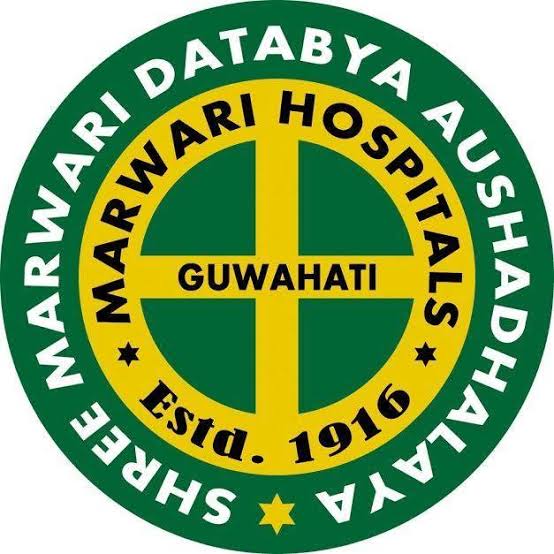










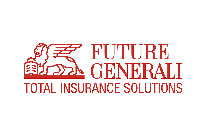
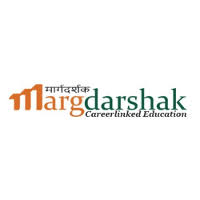



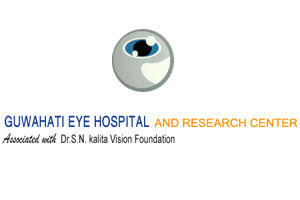

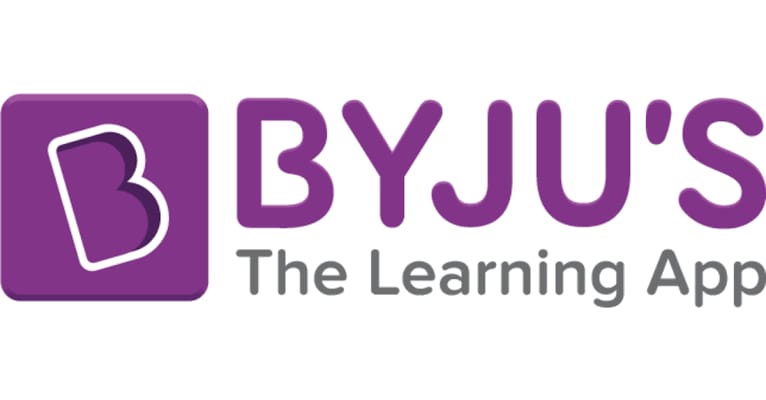

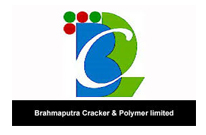


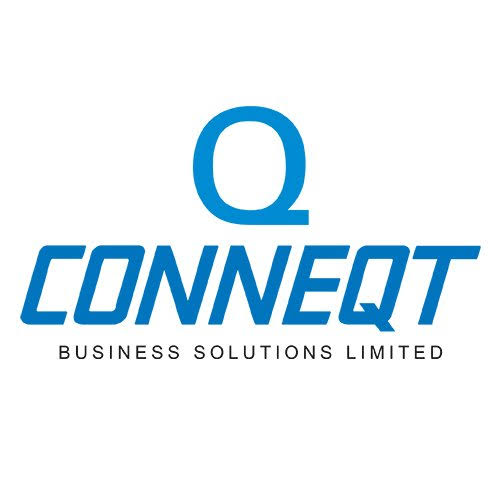











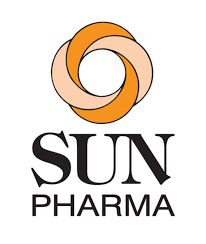
.png)




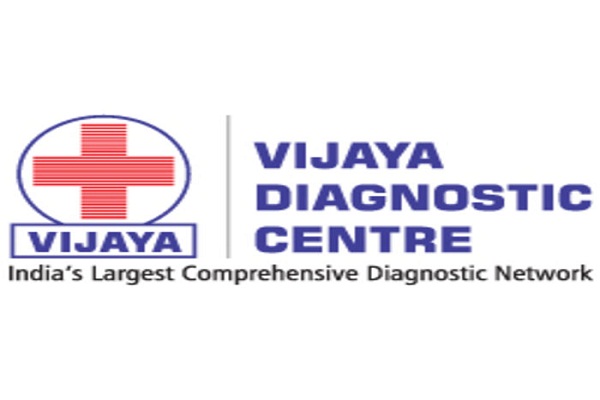








"I am a BBA student of 3rd semester. I hail from Bhutan. I vow that I am having a great experience i...
"AdtU is amazing. I am a BBA student of 2019-22 batch and I am just grateful for the amount of oppor...
Let us be grateful to the people and place who makes us happy. They are the charming gardeners whom ...
Currently I am pursuing MBA in Assam Down Town University. MBA is the professional course through wh...
AdtU is a university that focuses on giving knowledge, education and simultaneously making the stude...
The Assam downtown University has been a great learning experience. The university has provided me w...
My experience with AdtU has been splendid one indeed. Little needs to said about its scenic infrastr...
As a student I am very glad that I have got an opportunity to study here in Assam downtown universi...
My name is Sakhyajit Roy. I?m from Tripura. I joined the university on Auguest, 2017 as a student of...
I share immense pleasure to share my post graduate program experience in Assam down town University....
AdtU is a platform where I got golden opportunities to feed my zeal for knowledge through the dynami...
I am fortunate to get an opportunity to study here in Assam Downtown University. The best thing abou...
Our university is one of the best place for developing ourselves in the field of research and acedem...
ADTU is a university that is very good interms of infrastructure, academics and placements. Our tea...
It is one of best private colleges in North East India, it also provides a good environment for ed...
ADTU is a good University which provides the students with best quality lectures and ensures comfort...
The environment of Assam downtown university is very pleasant.The department of BMLT is very good a...
The university has all the necessary facilities and amenities for students . The classrooms and the ...
Assam downtown University is well recognised all over india. In the ongoing pandemic situation it ha...








